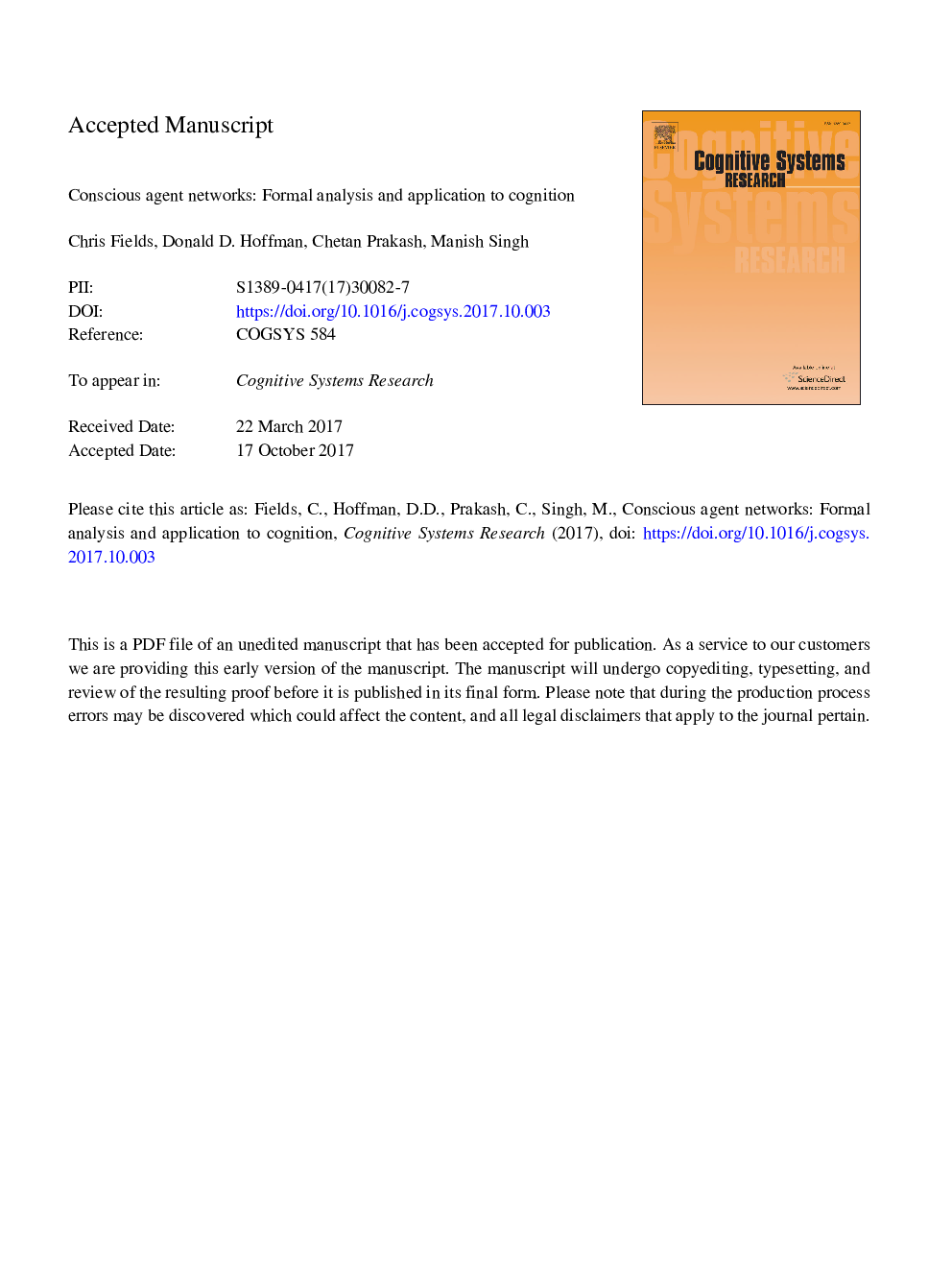| Article ID | Journal | Published Year | Pages | File Type |
|---|---|---|---|---|
| 6853818 | Cognitive Systems Research | 2018 | 57 Pages |
Abstract
Networks of “conscious agents” (CAs) as defined by Hoffman and Prakash (2014) are shown to provide a robust and intuitive representation of perceptual and cognitive processes in the context of the Interface Theory of Perception (Hoffman, Singh and Prakash, 2015). The behavior of the simplest CA networks is analyzed exhaustively. The construction of short- and long-term memories and the implementation of attention, categorization and case-based planning are demonstrated. These results show that robust perception and cognition can be modelled independently of any ontological assumptions about the world in which an agent is embedded. Any agent-world interaction can, in particular, also be represented as an agent-agent interaction.
Keywords
Related Topics
Physical Sciences and Engineering
Computer Science
Artificial Intelligence
Authors
Chris Fields, Donald D. Hoffman, Chetan Prakash, Manish Singh,
